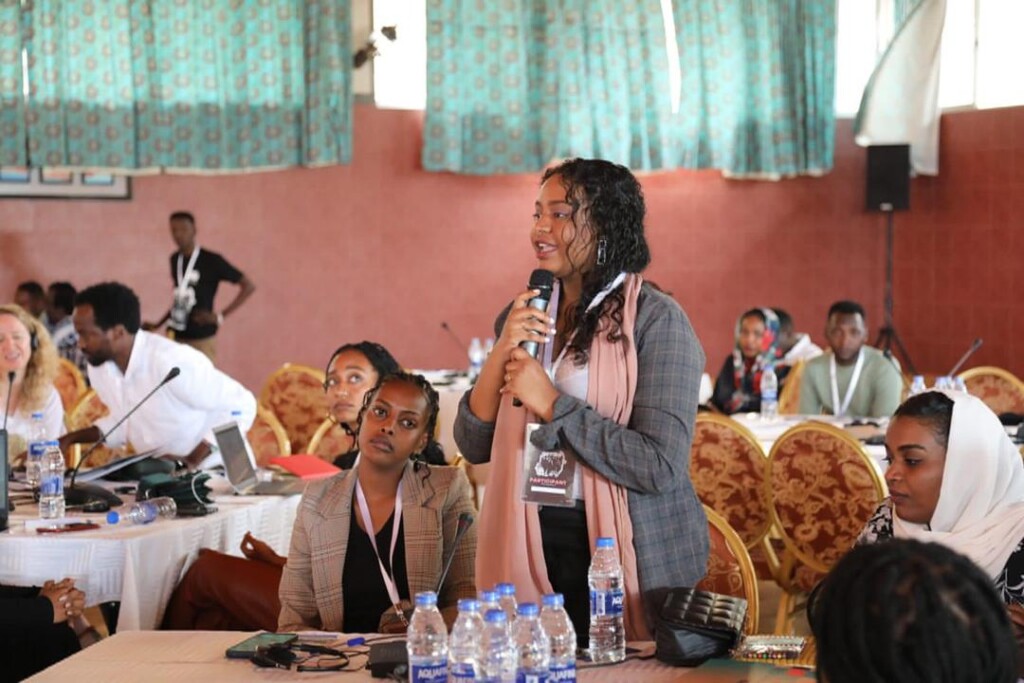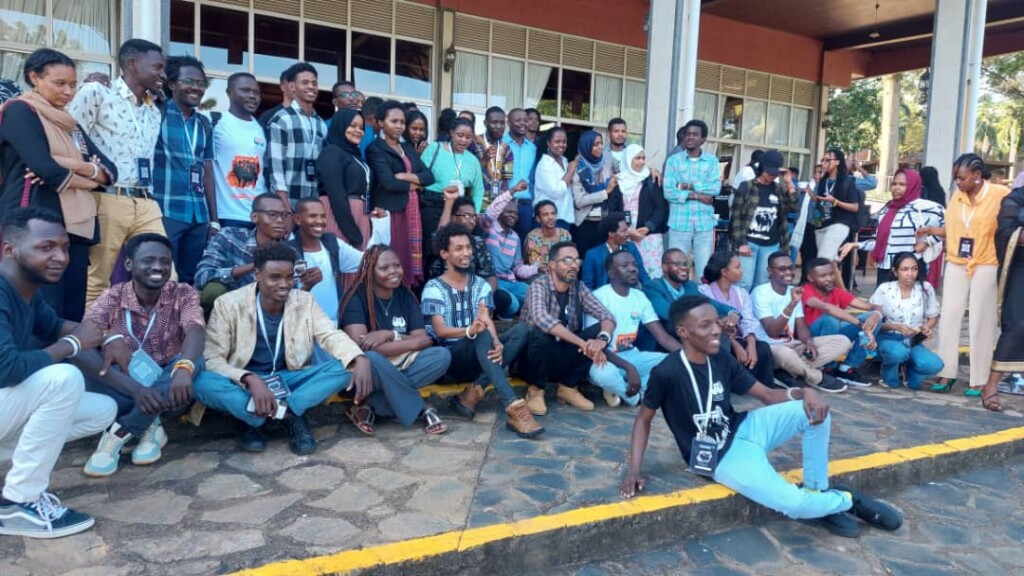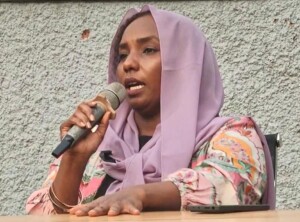Sudan Youth conference: ‘War an attempt to beat Sudanese back into submission’

Participants during the final day of the founding Sudanese Youth Network conference held in Entebbe, Uganda, on March 5 (Photo: @SudaneseYN via X)
Held over the span of four days, the founding conference of the Sudanese Youth Network for Ending War and Establishing Democratic Civil Transformation in Sudan concluded its proceedings this Tuesday. More than 160 Sudanese youth convened from Sudan, South Sudan, Uganda, Kenya, Ethiopia, Chad, and Egypt, to discuss ways to bring an end to the ongoing conflict.
Hosted in the Ugandan city of Entebbe, the founding conference produced a series of recommendations aimed at supporting efforts to halt the ongoing conflict, provide humanitarian aid to affected regions, advocate for youth involvement in civil political processes, and set forth the path to transitional justice.
Mohamed El Doum, a member of the youth network, explained that after the conference, “there will be practical steps to form youth networks in countries where there is a diaspora presence, as well as in Sudan, after which we will begin to implement the conference’s outcomes.
“The network will engage, in the first step, with all the actors at home and abroad who are working to stop the war in Sudan”, he continued, emphasising that the network focuses on internal actors “because looking for an external solution and ignoring internal voices is hindering the peace process.
“We will also engage with humanitarian actors and youth in areas such as Jebel Marra, South Kordofan, and eastern Sudan which are controlled by armed movements, to involve them in our efforts to stop the war.”
Regarding direct engagement with the conflicting parties, El Doum told Radio Dabanga that the conference “discussed at length the issue of meeting with the Sudanese Armed Forces (SAF) and the Rapid Support Forces (RSF), and we are now thinking about ways to arrange a meeting”. He added that “the longer the war lasts, the more likely that other parties emerge, and a solution becomes more complicated.”
Conference rapporteur Mohanad Oraby underscored the significance of the outcomes on transitional justice, youth representation in constitutional processes, and participation in political negotiations.
“It is important for the network to move towards implementing these outcomes by adopting means, such as organising popular campaigns, to convey the voice of youth against those who started the war, and those who wish for it to continue.
“We are ready to sit with the commanders of the army and the RSF, let us put before them the youth agenda, and pressure them through existing networks at home and across regional and international levels”, he added.

American support
The conference was welcomed by Mohieldin Omar, the political advisor to the US ambassador to Sudan, who told attendees that “any political initiative excluding the youth would lack legitimacy and not receive support from the United States”.
During his address on the final day of the conference, Omar staunchly opposed any future leadership roles for SAF Commander Abdelfattah El Burhan or RSF Commander Mohamed ‘Hemedti’ Dagalo, stating they “are not qualified to lead the country after what they have done to it”.
The political advisor reaffirmed US commitment to supporting peace initiatives, reinstating democratic civil governance in Sudan, and facilitating the distribution of humanitarian aid. He pointed to the recent appointment of a special envoy to Sudan as evidence of this commitment, adding that the envoy “will soon go on a regional tour to advance peace efforts in Sudan”.
While acknowledging existing efforts to end the conflict in Sudan, Omar lamented their “lack of success thus far”.
The advisor to the US ambassador concluded by recognising that “the ultimate path to democracy lies in the hands of the Sudanese people, with the US standing by to offer support”.
‘Fragment the revolution’
University professor Hisham El Nour stressed the importance of implementing the outcomes of the conference, telling attendees they are “evidence of the youth’s pivotal role in shaping the future”.
In his concluding speech, El Nour asserted that Sudan is faced with two options after the war: “to rebuild itself on new foundations, or to have no Sudan”.
Labeling the April 15 war as “an attempt to beat the Sudanese people back into submission, and dismantle the December revolution”, he argued that the magnitude of the revolution ensures that its failure “can only be accomplished by events of equal magnitude, like this war”.
El Nour highlighted the regional significance of the December revolution beyond Sudan. “Unlike the Arab Spring, which brought political Islam to power, we stood against political Islam, making our revolution one that is marked by the Enlightenment principles that started the French revolution.
“This war must be a turning point, so that we can look at our problems from new and different angles.”
The professor concluded with the belief that youth are the most qualified to lead this transformation. “Your successful organisation of this conference, which united Sudanese youth from various backgrounds, should be seen as a significant event in Sudanese and global political history.”











 and then
and then